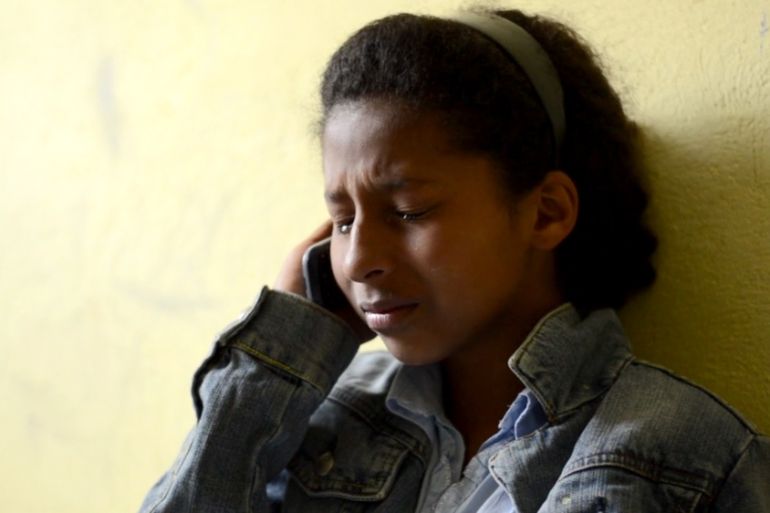
Mexico: The other side of the wall
A teenage brother and sister take on the responsibility of raising their young siblings when their mother is imprisoned.
Editor’s note: This film is no longer available to view online.
When their mother is sentenced to 10 years in a Mexican prison on questionable charges, teenagers Rocio and Ale are left with no choice but to play the role of mother and father to their two younger siblings, David and Yami.
Keep reading
list of 4 items‘We share with rats’: Neglect, empty promises for S African hostel-dwellers
Thirty years waiting for a house: South Africa’s ‘backyard’ dwellers
Photos: Malnutrition threatens future Afghan generations
As Honduran immigrants living in Mexico, they lack work papers, making opportunities for employment scarce.
While 18-year old Ale tries his best to make rational decisions for the good of the family, the pressure mounts. Finances are tight, his girlfriend is expecting and his 13-year old sister Rocio is testing her teenage boundaries, wanting less responsibility and more freedom. Fearing she may get herself into trouble, Ale clamps down and tensions between them escalate.
As apprehensions about the future intensify, Ale must make the difficult decision between keeping the family together in Mexico or breaking them apart so he can cross the US border for work.
![With their mother in prison, Yami and David are looked after by their teenage siblings Ale and Rocio [Screengrab/Al Jazeera]](/wp-content/uploads/2017/11/9e0d01dc0ddc47f0b4b4f75c513e1a3d_18.jpeg)
FILMMAKER’S VIEW
By Pau Ortiz
In December 2013 I travelled to Mexico on a one-way ticket. At home in Barcelona, things around me no longer motivated me.
In Mexico, I came into contact with tough realities. I saw how people were discriminated against based on their place of origin, the colour of their skin, their gender, their language, etc. Mexican society was living in a context that to me was wildly different. A lot of people live in the present because they don’t really know what can happen tomorrow.
At the same time, I discovered a strong sense of community. Something that made people look after each other as if they were one big family. I met some people who had a great ability to get by and be deeply connected with family, friends, joy and sadness in the face of structural and direct violence.
![Without the required papers, 18-year-old Ale is struggling to find work to support his siblings [Screengrab/Al Jazeera]](/wp-content/uploads/2017/11/ab81b3215dbd454f966d6085bd14ce51_18.jpeg)
This astonished me and encouraged me to collaborate with some NGOs that were working with these people, to get to know more about their lives and learn from their wisdom.
In March 2014, I met the people from “Colectiva Cereza”, an organisation that helps women in prison with their court cases and reintegration in society.
It is at that point that I met Rocio and Alejandro’s mother. She is a strong woman who, despite being in prison, would shine her light on the other prisoners. She had a great ‘mom’ spirit and usually cooked for everyone.
![Thirteen-year-old Rocio is frustrated about her many responsibilities and wants more freedom [Screengrab/Al Jazeera]](/wp-content/uploads/2017/11/977804d709314aff881e2bb5028b1390_18.jpeg)
When I met her children, I was equally surprised. From the moment I first interviewed them, I had the feeling I could communicate in a very intimate way with them, with a special kind of honesty and maturity.
Soon I started to learn more about their story. They had faced a life full of obstacles and difficult situations from a very young age, but they had always been able to carry on with a lot of dignity, sensitivity and a sense of humour.
After the first months of shooting with them I realised I wanted this film to be the first film in a long-term and ambitious audiovisual project, which aims to find and learn from people like the protagonists of this film: wise people living on the edges of society who share their stories so other people can learn and be inspired by them.
I am still in touch with the protagonists of The other side of the wall every few weeks. They have work papers by now and some money to study and put towards their future. The film won several awards and 50 percent of the prize money goes to them.